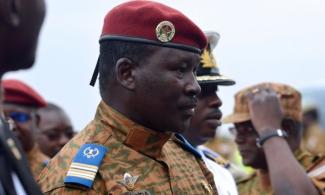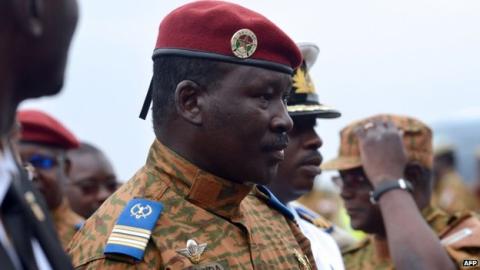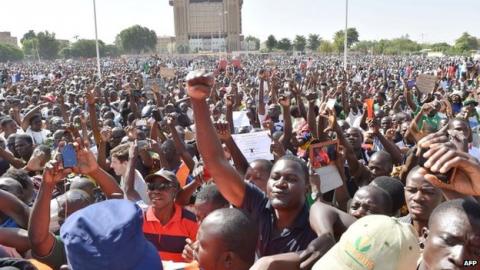
On Friday, the interim leader of Burkina Faso, Lieutenant Colonel Isaac Zida, dismissed the African Union's two-week deadline to transfer power over to civilians, saying that he is not worried about sanctions and claiming that the African Union has let them down before.
The interim leader of Burkina Faso, Lieutenant Colonel Isaac Zida, has rejected the African Union's two-week deadline to hand over power to civilians despite previously agreeing to do so, the BBC reported on Friday.
"We are not afraid of sanctions, we care much more about stability," said Lt. Col. Zida after speaking with opposition parties and civil society.


Burkina Faso's political parties, armed forces, civil society and religious and traditional leaders have agreed on a one-year transition period before holding presidential and legislative elections in November 2015, AllAfrica.com reports, but they have not yet decided who will become Burkina Faso's interim leader. The military took over the government after President Blaise Compaoré resigned last week in response to widespread civilian protests.
On Thursday, leaders of the Economic Community of West African States (ECOWAS) agreed to the lifting of the suspension of the constitution as well as the holding of presidential and legislative elections within the next 12 months, according to Premium Times Nigeria. ECOWAS appointed Senegalese President Macky Sall to oversee the mediation process in Burkina Faso.
[story_link align="left"]35914[/story_link]Lt. Col. Zida had announced to a group of diplomats on Monday that he would transfer power to a transitional government that had yet to be formed. He also warned the country of two opposition leaders, Saran Sérémé and General Kouamé Lougue, who he said were falsely trying to present themselves as leaders of the transitional government.
But late Thursday, he shifted gears, saying that he is not concerned about the deadline imposed by the African Union given what he described as the organization's complex relationship with the country.
"We have waited on the African Union in moments when it should have shown its fraternity and its friendship but instead was not there," he said. "It's unfortunate but it's not too late."